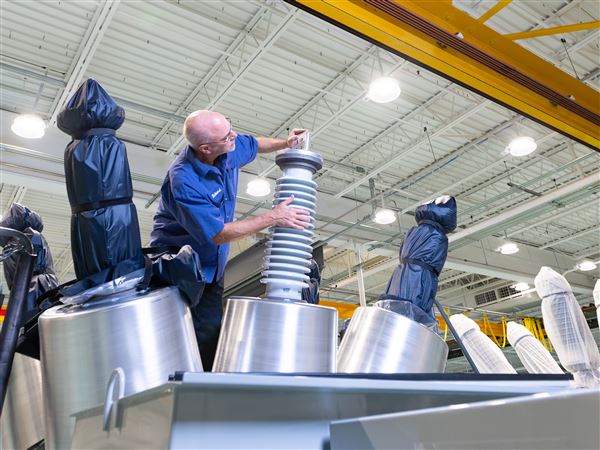Computer hard drive giant Seagate Technologies is planning a "phased closure" of its Pittsburgh research center, located in the Strip District. The shutdown will be complete by June 2009.
"In order to enhance the speed, flexibility and cost efficiency with which our R&D investment is turned into time-to-market products, Seagate is integrating the activities of its Pittsburgh research facility into other existing research and development facilities we have in the U.S.," spokesman Forrest Monroy said in an e-mail to the Post-Gazette.
The company employs 159 at the facility, which opened in August 2002. The closing process will begin in February.
"The Pittsburgh R&D team has made a valuable contribution to Seagate and to the hard drive industry, and we will make every effort to mitigate the impact of this action on our employees here, including a competitive severance package and outplacement assistance," Mr. Monroy said.
Mr. Monroy said the company does not yet know how many Pittsburgh employees will be offered positions at Seagate's other research facilities, in California and Minnesota.
Kevin Evanto, spokesman for Allegheny County Chief Executive Dan Onorato, said, "It's a shame anytime that a company like this decides to move operations out of the region." But he said Mr. Onorato was "heartened" by recent reports of strong growth in the Pittsburgh tech community.
Requests for comment from the office of Mayor Luke Ravenstahl were unsuccessful.
Members of Pittsburgh's technology community gave mixed responses to the news of Seagate's pending departure.
Carnegie Mellon University's Data Storage Systems Center, part of the university's department of electrical and computer engineering, conducts research on data storage technology. The center has collaborated on research with Seagate, along with other disk drive manufacturers, in what department head Ed Schlesinger called "a very good relationship."
"I fully expect that relationship to continue and to remain strong," he said, noting that contemporary research collaborations commonly stretch across state and national boundaries.
Don Smith, director of economic development for both CMU and the University of Pittsburgh, said "Obviously, it's not great news," but said that there is a silver lining, with two aspects.
First, he said, "Seagate had a very successful run here and demonstrated that Pittsburgh is capable of supporting a world-class research facility that revolutionized the company and the hard-drive industry."
Additionally, the company "attracted a large number of incredibly smart and talented individuals to Pittsburgh," some of whom will now be available to other local tech companies.
Audrey Russo, president and chief executive officer of the Pittsburgh Technology Council, said some of Seagate's employees "already have had potential job opportunities presented to them."
Others still might.
"The region still has thousands of technology companies that employ hundreds of thousands of people, and that pay a total annual payroll approaching $11 billion," Ms. Russo said.
And some of them have already announced hiring plans, noted DeWitt Peart, president of the Pittsburgh Regional Alliance. Vocollect is planning to hire 50, Powercast is hiring 118, and Pepperweed Consulting, transplanted from Indianapolis in February, plans to add 100 to its staff.
"These companies can very easily benefit from the talent that is Seagate's loss," he said.
A week ago, technology analyst firm Dice Consulting reported that technology job listings in the Pittsburgh market were up 22 percent from a year ago, making Pittsburgh the fourth fastest-growing metro area in the country for tech jobs.
Dice's Pittsburgh want ads totaled 5,721 through August 2008, compared with some 4,700 through August 2007.
The impact of Seagate's closure will go beyond the employees themselves.
The vacating of a 200,000-square-foot, six-year-old office building will challenge Pittsburgh's commercial real estate market.
"Nobody likes to see a tenant like that leave," said Gerry McLaughlin, vice president at Grubb & Ellis. But, he said, "the market has been getting better and better over the last couple of years and we'll be able to absorb that space when it comes online."
"I'm sure that Seagate built in a lot of good amenities in the building," he added. And outside of it too, in the form of a large parking lot.
"It's a very viable building for any large users that are out there."
First Published: September 19, 2008, 8:00 a.m.














